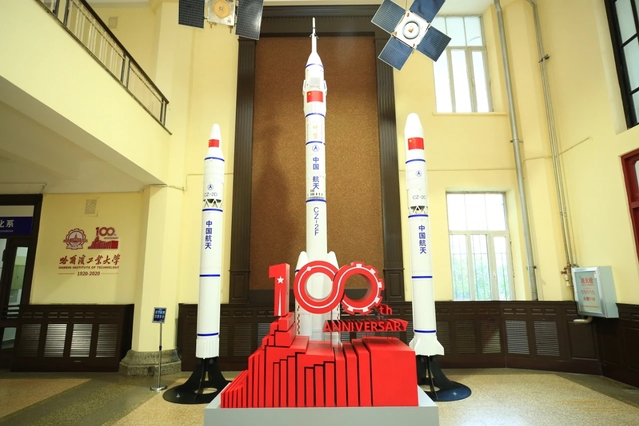
In June 1987, with the approval of the Ministry of Aerospace Industry of the PRC, Harbin Institute of Technology (HIT) established China’s first school that focused on cultivating advanced aerospace talents and engaged in high-tech researches in aerospace, namely the School of Aerospace. For more than 30 years, generations of teachers and students of the school have been making unremitting efforts for the Chinese Dream and the Space Dream. More than 10,000 graduates have joined the main battlefield of China's aerospace industry.
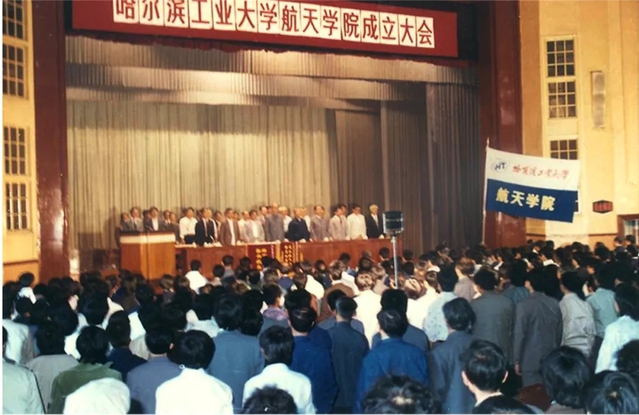
The school has 13 departments, research institutes (centers), 5 undergraduate majors, and 5 first-level disciplines: Control Science and Engineering, Aeronautical and Astronautical Science and Technology, Mechanics, Electronics Science and Technology, and Optical Engineering (all with the right to grant master's and doctoral degrees, and all have post-doctoral mobile stations). In the fourth round of the China University Subject Rankings (CUSR), HIT ranked A+ in Control Science and Engineering, A in Mechanics, A- in Optical Engineering, B+ in Aeronautical and Astronautical Science and Technology, and B in Electronics Science and Technology. Mechanics and Control Science and Engineering have been selected in the list of Double First Classacademic discipline construction.
Through the unremitting efforts of generations of scholars, the school has accumulated a strong academic background and formed a high-level faculty with well-known scholars and experts as the backbone along with a reasonable echelon structure. Academician Ma Zuguang, a model for senior intellectuals in the new era, is an outstanding representative of this faculty. The school currently has 457 faculty members, of whom 181 are in full professors/researchers and 155 are in associate professors/researchers. Among the faculty, there are 10 academicians of the Chinese Academy of Sciences and Chinese Academy of Engineering, 8 winners of the National Science Fund for Distinguished Young Scholars, and 12 winners for Excellent Young Scholars, 2 winners of the national “Teaching Masters Award of Higher Education”, and 22 people was selected in national“Ten Thousand Talents Program”. There are 2 innovative research groups from the National Natural Science Foundation of China, 4 innovation teams from the Ministry of Education, 4 national defense science and technology innovation teams, and 2 innovation teams in key fields from the Ministry of Science and Technology. Three national model teachers have emerged in the faculty of the school, a group of teachers and teams have won the National Innovation Award and Medal, the National University Huang Danian Teacher Team, the National Worker Pioneer, and the National Advanced Collective of Professional and Technical Talents and other honors.
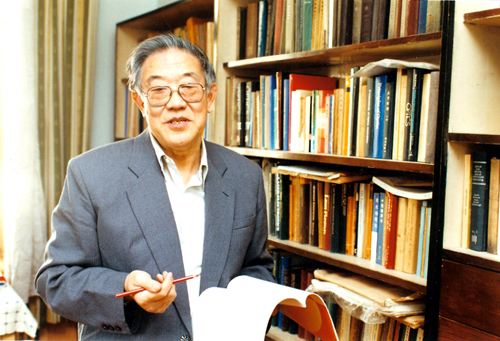
The school centeres on talent training and continues to strengthen teaching construction, has built 4 national teaching demonstration centers (bases), 1 national demonstration engineering professional degree postgraduate joint training base, 3 national first-class undergraduate professional construction sites, 5 key majors has been included in the national defense /Ministry of Industry and Information Technology, and 5 majors have been selected into the National Excellent Engineer Education and Training Program. The school has established a state-level teaching team of “Mechanics Course”, and Professor Zhang Shaoshi and Professor Sun Yi won the Award of Outstanding Teachers of Higher Education. 4 national excellent courses, 5 provincial excellent courses, 1 national bilingual teaching demonstration course and 1 national virtual simulation experimental teaching project have been established. It has won 4 national teaching achievement awards, 42 provincial teaching achievement awards and 3 national books and teaching materials awards.
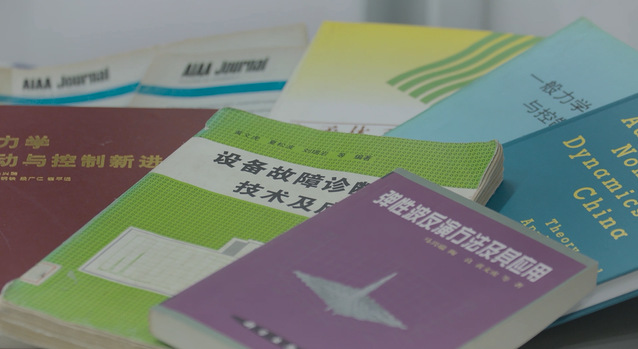
The school takes the major national needs as the direction, promotes the development of key technologies, combines scientific research with technical reserves, actively undertakes projects of the state of the art, and comprehensively serves lunar exploration projects, manned space projects, high-scoring earth observations and other national Major science and technology projects, forming not only distinctive features but unique advantages and enjoying high reputation in the fields of microsatellites, laser communications, composite materials, and control theory, and have become an important force in promoting the progress of China's aerospace industry. There are 2 national key laboratories, 2 national and local joint engineering laboratories (research centers), 1 international joint research center, 8 provincial and ministerial key laboratories, and 3 national defense key discipline laboratories. As a core unit, it participated in the construction of 2011 Collaborative Innovation Center of Aerospace Science and Technology and Ground Simulation Device for Space Environment of national major science and technology infrastructure. In the past five years, it has won 6 national science and technology awards, 30 provincial and ministerial science and technology awards, undertaken more than 1,000 national, provincial and ministerial vertical scientific research projects, and more than 1,500 horizontal projects of aerospace and national defense research and production units with a total research funding of more than 2.5 billion yuan.
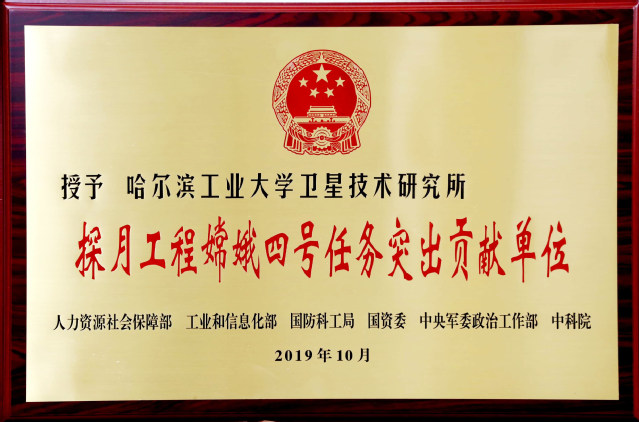
There are more than 4,500 students in the school, and the proportion of undergraduates who pursuing their master’s degrees maintains about 70% stably. Many groups of students have entered the world-class universities such as MIT and Stanford for further study. Graduates are mainly employed by institutions of higher learning, national research institutes and well-known domestic and foreign enterprises. Many of the talents cultivated by the school have become leaders and backbone forces in various fields, such as Ma Xingrui, Yuan Jiajun, Zhang Bonan, Zhang Simin, Gao Qunyao, etc. It also includes others who had studied in various majors in the early days, such as Song Jian, Li Jinai, Hu Shixiang, Luan Enjie, Liu Zhusheng.
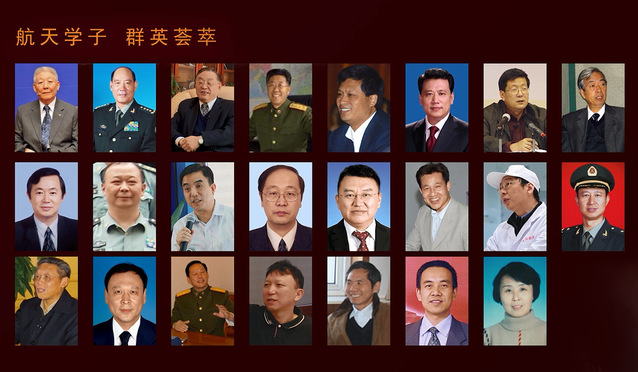
The school has established close cooperative relations with various research institutes of China Aerospace Science and Technology Corporation and China Aerospace Science and Industry Corporation, jointly established China’s first batch of new aerospace majors and training & practice bases for students, and hired dozens of famous aerospace experts, namely Sun Jiadong and Wang Yongzhi as part-time professors.
The school actively carries out international cooperation, and has established friendly cooperative relations with more than 20 world-renowned universities, hiring 6 long-term overseas contract experts. In the past three years, it has hosted more than 10 international academic conferences, hired nearly a hundred foreign experts to give lectures in the school, as well as nearly a hundred teachers participated in overseas international conferences, and more than 50 outstanding young teachers went to world-renowned universities for further study. With the approval of “111 Talents Introduction Plan”, the school has established Base for Introducing Talents for “Aerospace technology innovation” and Base for Introducing Talents for “Analysis and Control innovation of Networked Dynamic Systems”. In response to the Belt and Road Initiative, the School utilizes its traditional cooperative relations and geographical advantages with Russia and Ukraine, has established close cooperative relations with first-class universities such as The Russian Academy of Sciences, Moscow University, Moscow Baumann State Technical University, and Samara State University of Aeronautics and Astronautics. The teaching and experimental equipment such as the resource capsule and lunar rover introduced from Russia have played a significant role in the construction of China's new aerospace major.
At present, the school is taking advantage of its strong strength, high starting point and rapid development, and striving to become one of the first-class aerospace schools around the world as soon as possible.